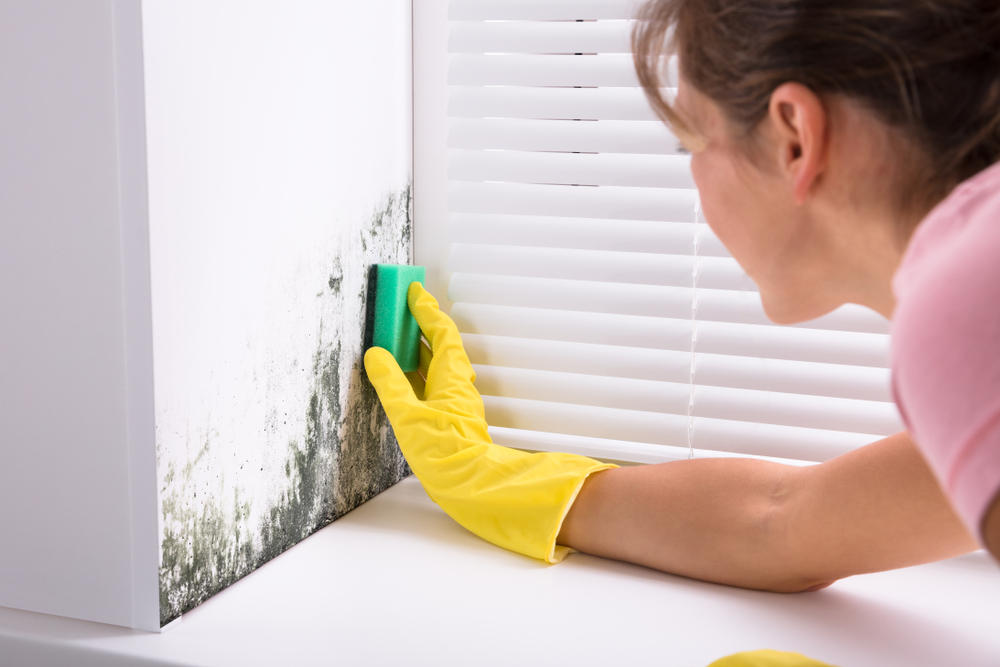Commercial Cleaning Darlinghurst
Mould is a problem at several levels. All dirt and grime are unsightly, and a potential health risk. But mould is persistent, hard to remove, and perhaps the biggest health risk of all. Some types of mould can cause respiratory and cognitive problems. When exposed to mould for any length of time people suffer itchy eyes, shortness of breath, poor memory, and foggy thinking. So mould in the office or home needs to be removed.
Mould will grow in damp conditions. If we keep the home dry and clean we greatly reduce the chances of developing mould on the walls. This is difficult in damp places, like the bathroom, so in some rooms, we must remove mould on a regular basis, perhaps every week or two.
Commercial Cleaning Bondi
Mould can develop on walls and ceilings of any room. But with some basic cleaning methods and fairly basic materials, we can remove this mould with a few hours of work.
How to Get Rid of Mould
Always use rubber gloves when dealing with mould. We also recommend a face mask.
- Spray the mould infested area with diluted bleach, and let this sit on the walls/ceiling for an hour. Then scrub the area with a harsh bristle brush. Wipe the area dry. with an old rag. Dispose of the rag.
- Spray the area with white vinegar, let it sit for an hour, then scrub the area with a stiff bristle brush. Wipe clean with an old rag. Dispose of the rad.
- Spray the area with Bi-Carb of Soda and water. Then wipe clean with an old rag and dispose of the rag.
- Spray the area with diluted clove oil. You can often leave this on the wall, though some people have a bad reaction to the smell of clove oil, so you might just leave it overnight and remove it the next day with an old rag.
It is also possible to use diluted Hydrogen peroxide instead of vinegar or bleach.
If there is a plumbing leak or moisture coming in from the roof there will be much more of a mould problem. We should have this moisture issue fixed to prevent the mould from constantly reappearing.
People who use steam humidifiers may find mould is a reoccurring issue. It helps to keep the room ventilated, but we will still need to clean the walls and ceiling perhaps once per month.
Bathroom Strata Cleaning Parramatta
Mould is more of an issue in bathrooms, toilets, laundries, and rooms with a spa, because of the inevitable moisture. But at the same time, these rooms often have hard tiles and concrete, so they are easier to clean.
Spray the tiles in the bathroom with bleach, leave it for an hour, then scrub with a stiff bristle brush. Make sure to clean the grout between the tiles. Then hose down the tiles and let the water run down the drain.
Alternately we can use vinegar and Bi-Carb of Soda instead of Bleach. If the grout between the tiles is sealed the cleaning will be easier. A bathroom with an exhaust fan will suffer less moisture and therefore suffer less mould. Consider installing an exhaust fan.
Strata Cleaning North Sydney
Mould is unsightly and a legitimate health risk. Call professional cleaners to make sure your home stays free of mould.
Information Disclaimer
The content of this article is meant for informational purposes only and should not be considered a source of professional advice, recommendations, or endorsements. It is not a substitute for seeking expert guidance or making well-informed decisions based on individual circumstances. Although we strive for accuracy and reliability, we cannot guarantee the information's completeness or suitability for all situations. Readers are urged to verify facts, consult experts, and consider their own context before taking actions or decisions based on this content. No warranties, explicit or implied, are provided regarding the accuracy, timeliness, or completeness of the presented information. Relying on this information is at the reader's own discretion and risk. We encourage readers to consult relevant professionals or experts for advice tailored to their specific needs. Neither the author, publisher, nor any affiliated parties will be held responsible for errors, omissions, or damages resulting from the use or reliance on the information in this article.

